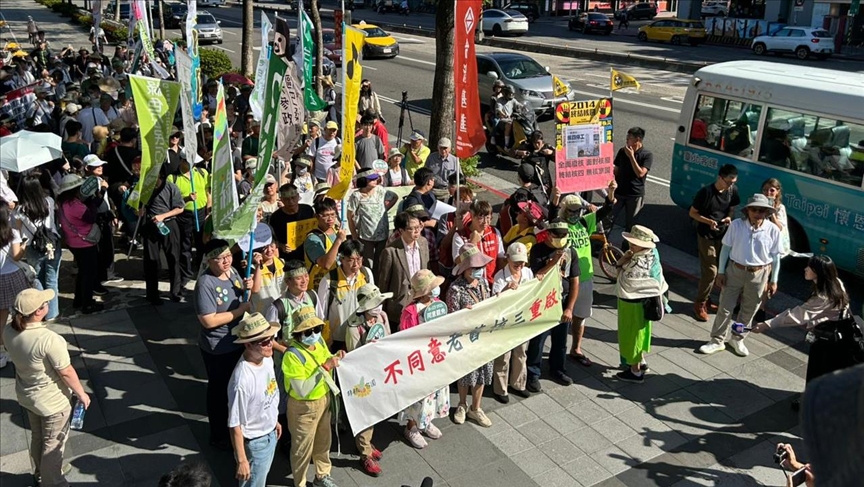Taiwan set to hold referendum on restarting last nuclear reactor
Aug. 23 vote could reverse island’s nuclear phase-out amid fierce debate over energy security, safety, and politics

TAIPEI, Taiwan
Taiwan will vote next week on whether to restart its last nuclear reactor, a move that could reverse the island’s “nuclear-free homeland” policy adopted in 2016.
The Aug. 23 referendum will ask voters if they agree to restart the Maanshan nuclear power plant’s second reactor in southern Taiwan if authorities find no safety concerns.
The unit was shut down in May under Taiwan’s nuclear phase-out plan.

The Taiwan People’s Party (TPP) proposed the measure on April 18 with support from the main opposition Kuomintang (KMT).
Opposition-dominated local legislature approved it on May 20, and the Central Election Commission scheduled the vote for Aug. 23.
Both pro- and anti-nuclear energy advocates have held rallies and campaigns ahead of the vote.
To pass, the referendum needs support from over 25% of Taiwan’s 5 million eligible voters and more “yes” than “no” ballots.
Nuclear power supplied over half of Taiwan’s electricity in the 1980s but fell to about 6% in 2023 as reactors were decommissioned.
Taiwan had three nuclear reactor plants, all of which have been decommissioned gradually since 2018. The island’s fourth plant was never completed, and a 2021 referendum rejected restarting construction.
Supporters say nuclear energy is crucial for an island reliant on imported fossil fuels, especially amid geopolitical risks.
They cite its low carbon footprint and note that countries like Japan and some EU members have extended reactor lifespans.
TPP chairperson Huang Kuo-Chang criticized the ruling Democratic Progressive Party (DPP) for missing its renewable energy target in a televised debate, saying: “Instead, coal plants are running at full capacity, worsening southern Taiwan’s air quality and harming public health, causing allergies from birth for many children as well as rising cardiovascular disease cases.”
Opponents warn of seismic risks, unresolved nuclear waste issues, and delays to renewable energy adoption.
They also contend that shifting to renewables should be gradual, much like phasing out coal, and argue the TPP and KMT’s preference for nuclear power is politically driven.
“Energy transition doesn’t mean shutting something down overnight. For example, if we shut all coal plants today, we’d instantly lose 40% of our power—unrealistic. Instead, we gradually reduce reliance on polluting or risky sources while scaling up cleaner ones,” said Lin Zheng Yuan of the Green Citizens Action Alliance.
Anadolu Agency website contains only a portion of the news stories offered to subscribers in the AA News Broadcasting System (HAS), and in summarized form. Please contact us for subscription options.







